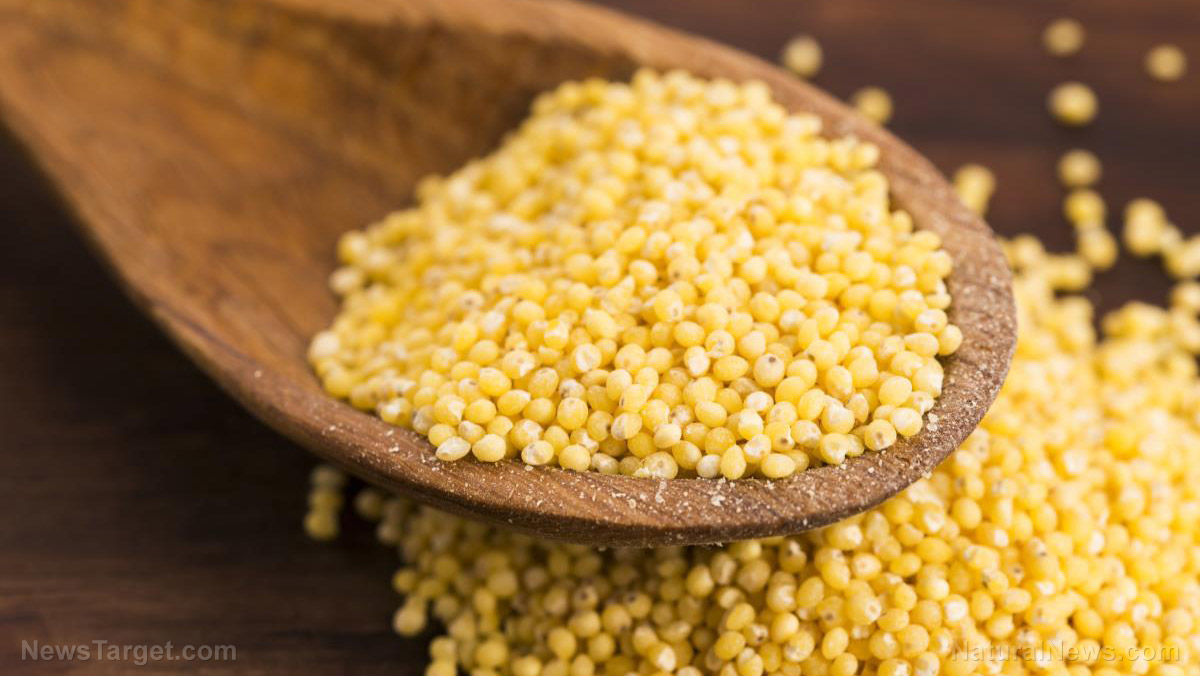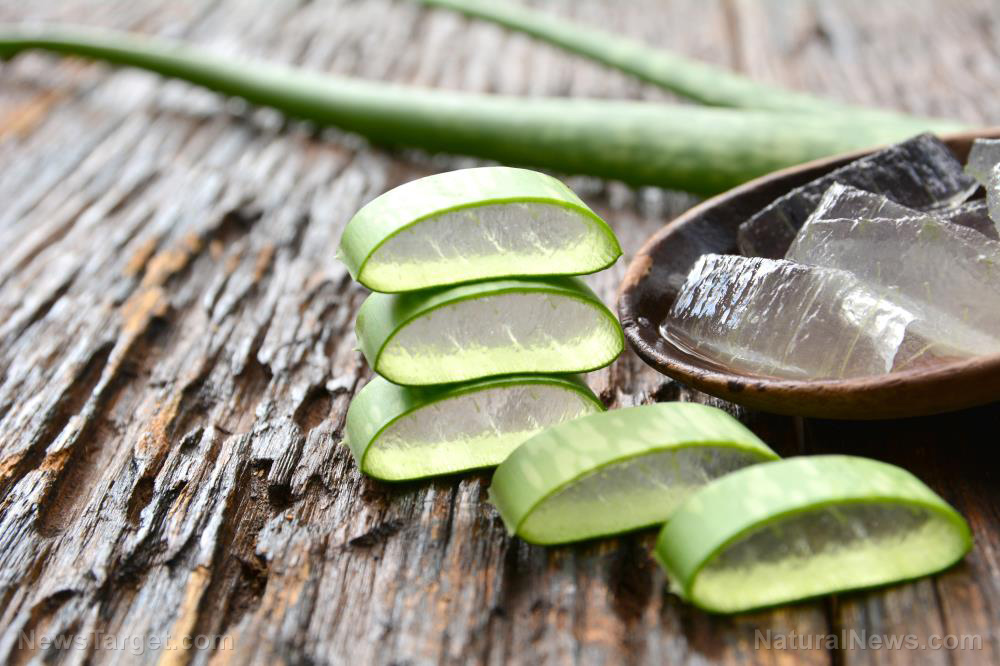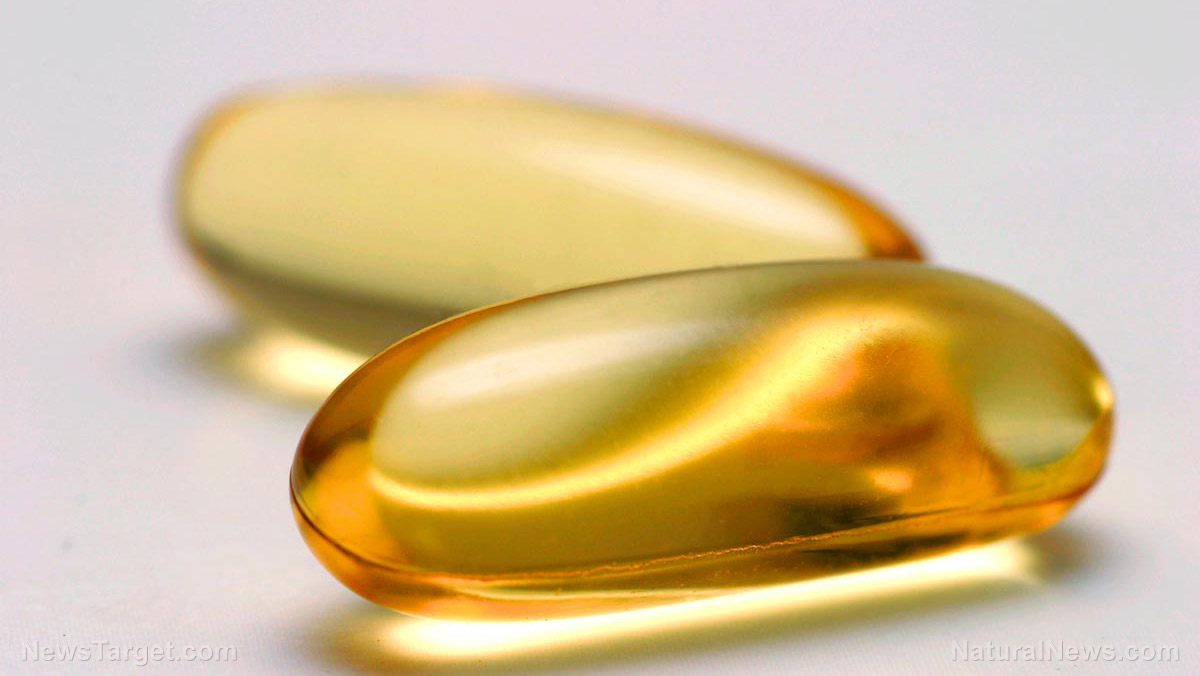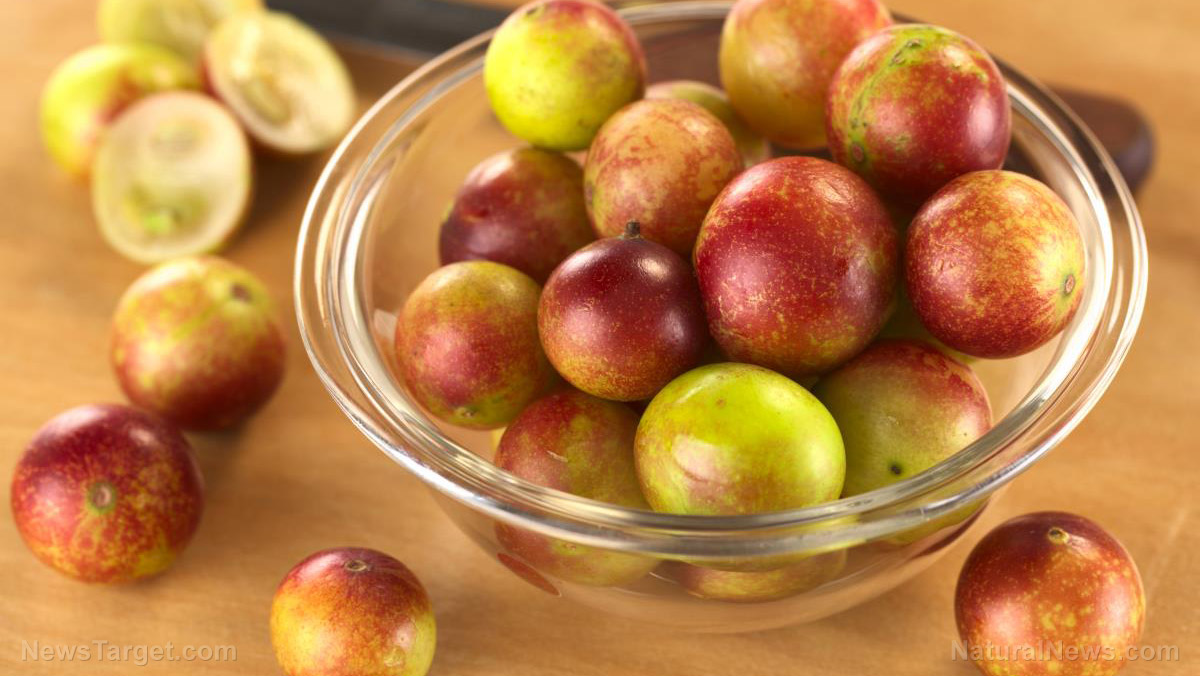Anti-inflammatory superfoods: Fight inflammation with this creamy broccoli soup recipe
12/09/2022 / By Rose Lidell
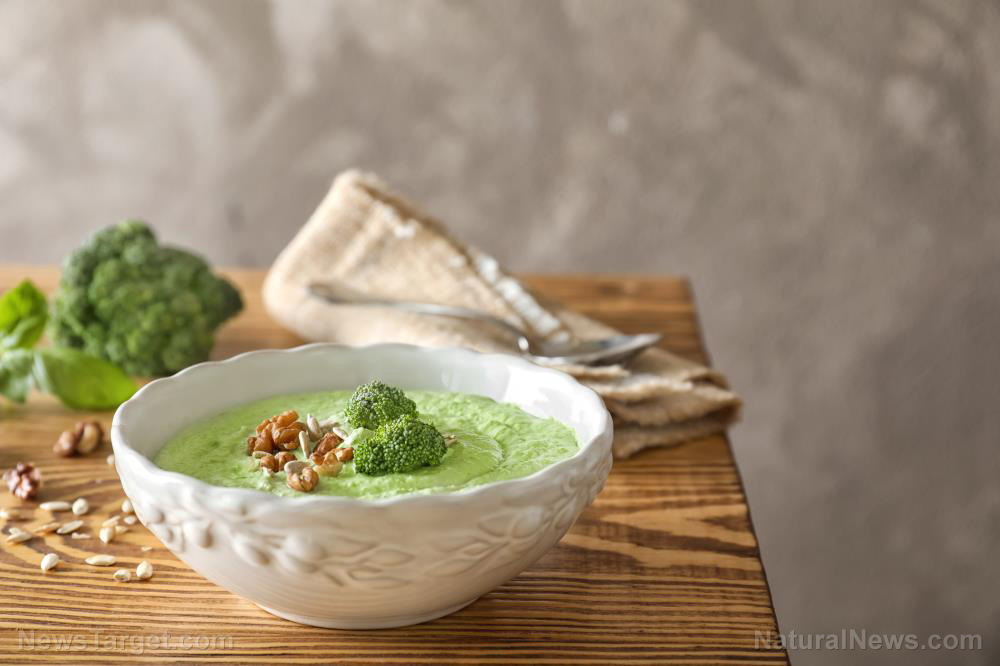
Inflammation is your body’s defense against infection. Inflammation is also crucial for wound healing.
But chronic inflammation is a different thing and it is linked to aging, different diseases and other adverse events.
You can protect your body against chronic inflammation by using beneficial spices like cayenne and turmeric.
Anti-inflammatory spices for better health
There are many anti-inflammatory spices. Detailed below are four versatile and flavorful spices you should add to your pantry:
Cayenne
Cayenne, paprika and smoked paprika all have compounds like capsaicin, which is also a potent anti-inflammatory. Cayenne is spicy so you if prefer something milder, try paprika or smoked paprika for the same effect.
Cayenne peppers are rich in various nutrients such as:
- Vitamin A
- Vitamin B6
- Vitamin C
- Vitamin K
Fresh cayenne peppers contain more vitamins. One fresh pepper offers 72 percent of the recommended daily amount of vitamin C and 50 percent of vitamin A.
While cayenne powder contains fewer vitamins than fresh peppers, they are still a great source of vitamin A. A teaspoon of cayenne pepper contains 15 percent of your daily vitamin A requirements.
Vitamin A is an essential nutrient and it has an important role in eye health; immune health; proper function of the heart, lungs, kidneys and other organs; and reproduction.
Mustard seed powder
Mustard seed powder comes from the mustard plant, which is a nutritious cruciferous vegetable.
Mustard contains many nutrients, including anti-inflammatory enzymes such as myrosinase and sulforaphane that can help fight against damage and disease.
Mustard contains glucosinolates, a group of sulfur-containing compounds found in other cruciferous vegetables like broccoli, Brussels sprouts and cabbage.
Glucosinolates are activated when the plant’s leaves or seeds are damaged via cutting or chewing. Data suggests that these compounds can help stimulate the body’s antioxidant defenses to protect against disease.
Mustard seeds and leaves are full of compounds such as isothiocyanate and sinigrin.
Isothiocyanate helps prevent cancer cells from growing or spreading, while sinigrin has anti-inflammatory, antibacterial, anticancer, antifungal and wound-healing properties.
Sumac
Sumac comes from burgundy-colored berries that grow in the Middle East. Sumac berries are dried and then ground down into the spice.
Sumac is full of anthocyanins or potent plant-based compounds with anti-inflammatory effects.
In a study published in the Journal of Research in Medical Sciences, researchers examined the effects of sumac on 41 people with Type 2 diabetes. The volunteers were divided into two groups: The first was given a placebo and the other received three grams of sumac powder daily for three months.
After the three-month period, the scientists discovered that the volunteers who were given sumac experienced a decrease in insulin. This suggests that sumac can help lower the risk of developing cardiovascular disease.
Sumac has a similar flavor profile to lemon. Sprinkle sumac on hummus, salad or savory soups.
Turmeric
Turmeric is a popular spice used to make savory curries. The spice has been used for hundreds of years and is considered important in Ayurveda, an ancient Indian medical system.
Turmeric is full of beneficial plant-based bioactive compounds, the most studied of which is curcumin. According to studies, curcumin can fight inflammation in multiple ways.
Research also suggests that curcumin may be a more effective anti-inflammatory treatment than common inflammation-fighting medications like aspirin and Advil (ibuprofen).
However, turmeric is not very bioavailable – meaning, your body has a hard time absorbing its benefits. To address this, you can add a pinch of black pepper since the spice contains piperine, a compound that helps boost the bioavailability of turmeric.
Since chronic inflammation is often linked to different chronic diseases, curcumin may help treat conditions like arthritis, inflammatory bowel disease (IBD) and pancreatitis.
Creamy broccoli soup recipe
Cooking cruciferous vegetables like broccoli means you lose the ability to absorb enzymes with health benefits.
Fortunately, you can solve this by cooking broccoli with other raw sources of enzymes like myrosinase and sulforaphane, such as mustard seed powder.
Spices like cayenne and mustard seed powder have key bioactive compounds that affect inflammation at different points in the molecular cascade within your cells. By combining different spices, you’re getting more powerful anti-inflammatory benefits.
After learning about inflammation and anti-inflammatory spices, put your knowledge into practice by preparing a batch of creamy, dairy-free broccoli soup that offers amazing anti-inflammatory benefits.
Ingredients for four servings:
- 1 Large head of broccoli, florets and stems roughly chopped
- 5 to 7 thin slices Daikon radish (You can also use other types of radish if preferred.)
- 2 Cups water or stock
- 1 Avocado
- 1/2 Teaspoon mustard seeds
- 1/2 Teaspoon turmeric
- 1 Large pinch cayenne pepper (Optional)
- 1 Large pinch sumac
- 3 to 6 Curry leaves (Optional)
- 2 Tablespoons avocado or olive oil
- 1 Tablespoon chopped walnuts
- 1 Leek, white and light green parts, finely chopped
- 1 Garlic clove, minced
- Juice of 1/2 lime
- Small handful microgreens
- Black pepper
- Salt
Preparation:
- Heat a tablespoon of the oil in a pot on medium heat until shimmering. Add the leeks to the oil and a pinch of salt, then cook for three to five minutes until softened but not brown.
- Add the garlic and saute for one minute or until fragrant.
- Add the chopped broccoli and water or stock and put the lid on. Bring the mixture to a boil.
- Reduce the heat to a simmer and cook the soup for 10 to 15 minutes until the broccoli is soft.
- Puree the mixture with the avocado in a blender, food processor, or immersion blender until smooth. Return the pureed mixture to the pot.
- Get a small pan and warm the remaining oil on medium heat. Add the mustard seeds and let the seeds sizzle until they begin to pop, or for about one minute.
- Add the turmeric and pepper to the seeds and saute for 30 seconds. Add the curry leaves. Cover the pan if the oil sputters and cook the spices for 30 to 60 seconds.
- Transfer the cooked spices and oil to the soup mixture in the pot and stir well.
- Season with salt as needed and stir in the lime juice.
- Ladle the soup into a bowl. Top with the radish, microgreens, walnuts, sumac and some cayenne (if you want a spicy soup) before serving.
Protect yourself against chronic inflammation by using anti-inflammatory spices like cayenne, mustard, sumac and turmeric.
Visit Veggie.news to read more articles about other nutritious herbs, spices and vegetables.
Watch the video below to find out about the health benefits of broccoli.
This video is from the Health Tips channel on Brighteon.com.
More related stories:
Top 41 nutrient-dense fruits and vegetables that you should incorporate into your diet.
Start your day right with a delicious keto-approved breakfast (includes 3 easy recipes).
Broccoli is a powerful anti-aging food that you should be eating every day.
Sources include:
Submit a correction >>
Tagged Under:
alternative medicine, broccoli, cayenne, disease treatments, food cures, food is medicine, food science, heart health, mustard, natural cures, natural medicine, nutrients, organics, phytonutrients, prevention, recipes, remedies, sumac, turmeric
This article may contain statements that reflect the opinion of the author
RECENT NEWS & ARTICLES
BloodSugar.News is a fact-based public education website published by Blood Sugar News Features, LLC.
All content copyright © 2018 by Blood Sugar News Features, LLC.
Contact Us with Tips or Corrections
All trademarks, registered trademarks and servicemarks mentioned on this site are the property of their respective owners.


